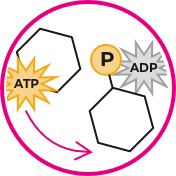Microbial modulation of glycolysis and its impact on inflammation and cancer

Introduction
Glycolysis regulation by hexokinase is emerging as a key feature of all cells with a high energetic demand, cells performing an immune response and rapidly proliferating cancer cells. Several lines of evidence link hexokinase and glycolysis regulation to controlling immune responses. The molecular details of the regulatory mechanisms of the metabolic reprogramming during an inflammatory response have only begun to be unraveled.
Aims
The overall aim of this project is to investigate how the microbiota regulate hexokinase activity and glycolysis in the intestinal epithelium and how this regulation influences host physiology in health and disease. More specifically, we will examine the molecular network controlling the expression and function of the microbiota-responsive hexokinase and determine its involvement in intestinal mucosal immune responses and carcinogenesis.

Outlook
This project promises to identify hexokinase and glycolysis regulation by the microbiota as key determinant in the control of inflammation or carcinogenesis. Further studies targeting specific functions of the microbiota through dietary, probiotic or pharmacological approaches may unravel new therapeutic options for intestinal chronic inflammation and cancer.
Researchers
Other important members of P5
- Dr. Neha Mishra, bioinformatician
- Dr. Joana Pimenta Bernardes, bioinformatician
- Dr. Sören Franzenburg, head of the NGS laboratory
- Jacob Hamm, medical PhD student
- Finn Hinrichsen, medical PhD student
- Kenneth Klischies, medical PhD student



